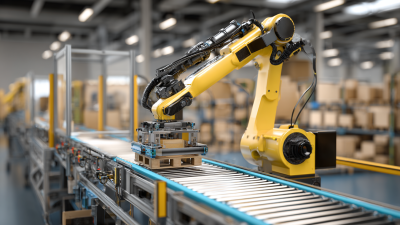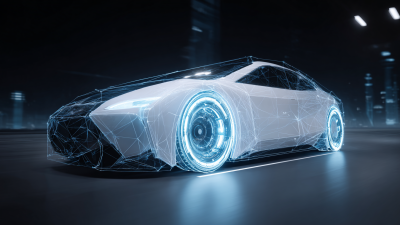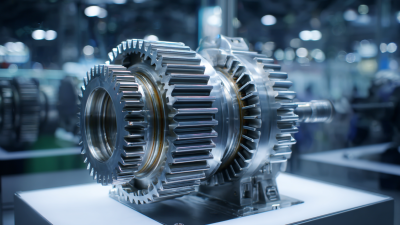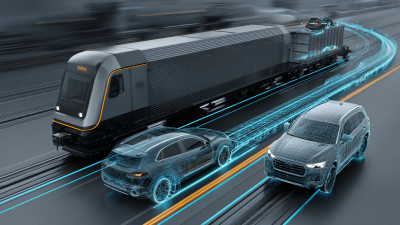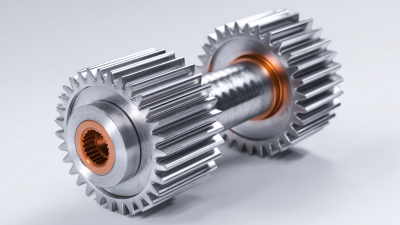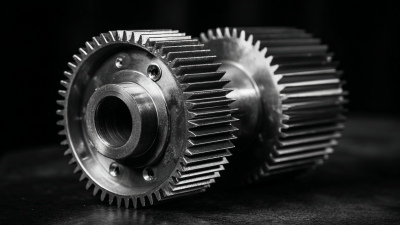Top 10 Drive Technologies Transforming Modern Automotive Industry
In the rapidly evolving landscape of the automotive industry, drive technologies are at the forefront of innovation, shaping the way vehicles are designed, powered, and experienced. As the world shifts toward sustainability and efficiency, experts like Dr. Emily Chen, a leading authority in automotive engineering, emphasize the pivotal role these technologies play in this transformation. “Drive technologies not only enhance vehicle performance but also pave the way for a cleaner, smarter future in transportation,” she states, highlighting the dual importance of performance and environmental responsibility.
The emergence of advanced drive technologies, including
electric propulsion,
hybrid systems, and
autonomous driving mechanisms, is redefining traditional automotive paradigms. With key players in the industry investing heavily in research and development, the potential for groundbreaking advancements is immense. This ongoing transformation not only reflects changing consumer preferences but also aligns with global initiatives aimed at reducing
carbon footprints.
As we delve into the top five drive technologies revolutionizing the modern automotive sector, we will explore how these innovations are not only changing the vehicles we drive but also reshaping our cities and lifestyles. From sustainable energy solutions to smart connectivity features, the future of driving is indeed bright, driven by the very technologies that are set to change the course of
automotive history.
Innovative Electric Powertrains Revolutionizing Vehicle Performance
The automotive industry is undergoing a significant transformation, driven by innovative electric powertrains that are fundamentally altering vehicle performance. According to the International Energy Agency (IEA), global electric vehicle sales surged by 140% in 2021, reaching a record 6.6 million units. This remarkable growth highlights the increasing consumer acceptance and demand for electric vehicles (EVs), spurred by advancements in battery technology and powertrain efficiency. With the introduction of high-performance electric motors and lightweight materials, manufacturers can now produce vehicles that not only meet but exceed the capabilities of their internal combustion engine counterparts.
A report published by McKinsey & Company predicts that by 2030, up to 55% of new car sales in major markets could be electric, indicating a major shift in automotive propulsion technologies. The latest generation of electric powertrains offers unparalleled acceleration, smoother operation, and significantly lower maintenance costs compared to traditional gasoline engines. Furthermore, innovations like regenerative braking systems and integrated thermal management contribute to enhanced energy efficiency, allowing electric vehicles to achieve an impressive range on a single charge. As automakers continue to invest in these technologies, the future of the automotive industry is set to be defined by electric powertrains that elevate performance standards and promote sustainability.
Top 10 Drive Technologies Transforming Modern Automotive Industry
This chart illustrates the adoption rates of various innovative electric powertrain technologies in the automotive industry. Each technology is measured by its market penetration percentage among new vehicle models in 2023.
Smart Drive Assistance Systems Enhancing Safety and Convenience
The automotive industry is undergoing a remarkable transformation driven by advanced smart drive assistance systems that significantly enhance both safety and convenience for drivers. These systems incorporate a variety of technologies, such as adaptive cruise control, lane-keeping assistance, and automatic emergency braking, which work together to reduce human error and improve reaction times in potentially dangerous situations. As a result, these features not only provide peace of mind for drivers but also help to mitigate the severity of accidents, making the roads safer for everyone.
Moreover, the integration of artificial intelligence in these systems allows for continuous learning and improvement. Smart drive assistance technologies can analyze real-time data from road conditions and traffic patterns, adapting their responses accordingly. This ability not only optimizes the driving experience but also promotes more efficient use of fuel and reduced emissions, aligning with the industry's push towards sustainability. The evolution of these technologies represents a pivotal shift towards a more autonomous and intelligent driving experience, ultimately redefining how we interact with our vehicles.
Top 10 Drive Technologies Transforming Modern Automotive Industry
| Technology |
Description |
Impact on Safety |
Impact on Convenience |
| Adaptive Cruise Control |
Maintains a safe distance from the vehicle ahead. |
Reduces rear-end collisions. |
Reduces driver fatigue on long trips. |
| Lane Keeping Assist |
Helps drivers stay in their lane. |
Minimizes lane departure accidents. |
Increases driving ease and comfort. |
| Automatic Emergency Braking |
Automatically applies brakes in emergencies. |
Significantly reduces crash severity. |
Provides peace of mind to the driver. |
| Traffic Sign Recognition |
Identifies and displays traffic signs. |
Alerts drivers of critical signage. |
Eases cognitive load while driving. |
| Blind Spot Monitoring |
Detects and warns of vehicles in blind spots. |
Reduces the chance of side collisions. |
Enhances confidence during lane changes. |
| Parking Assistance |
Guides drivers in parking maneuvers. |
Decreases parking-related accidents. |
Simplifies parallel and perpendicular parking. |
| 360-Degree Camera Systems |
Provides a bird's-eye view of the vehicle surroundings. |
Improves situational awareness. |
Facilitates navigating tight spaces. |
| Forward Collision Warning |
Warns drivers of imminent collisions. |
Encourages timely braking. |
Increases driver awareness of surroundings. |
| Connected Vehicle Technology |
Allows vehicles to communicate with each other and infrastructure. |
Enhances traffic safety and efficiency. |
Provides real-time traffic and navigation updates. |
Autonomous Driving Technologies Shaping the Future of Mobility
In recent years, autonomous driving technologies have emerged as a pivotal force reshaping the automotive industry and redefining mobility. With advancements in artificial intelligence, machine learning, and sensor technology, vehicles are increasingly capable of navigating complex environments with minimal human intervention. This transformation is not only enhancing safety but also revolutionizing the overall driving experience. As self-driving cars become more prevalent, users can expect to engage in multitasking or leisure activities during commutes, fundamentally altering the role of the driver.
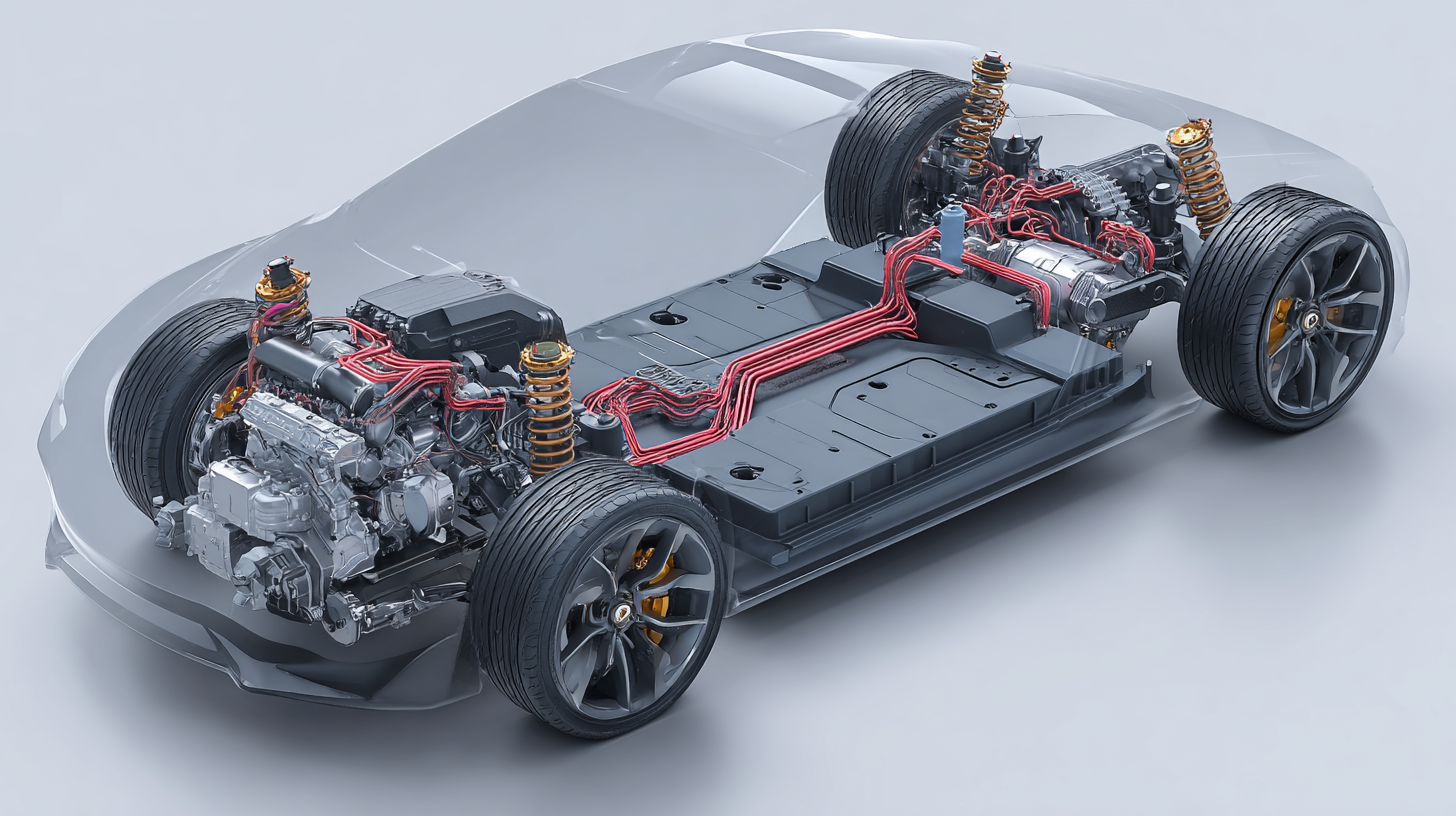
Furthermore, the integration of these technologies represents a significant ecological shift towards sustainable transport solutions. Autonomous vehicles are often designed to operate more efficiently, reducing energy consumption and lowering emissions. This innovation aligns with global efforts to combat climate change and promotes the development of smart cities where transport systems work in harmony with urban infrastructure. As cities adapt to these changes, the potential for increased public transportation efficiency and reduced traffic congestion presents an exciting outlook for future urban mobility.
Advanced Battery Management Solutions Improving Energy Efficiency
The automotive industry is undergoing a significant transformation, driven by advanced battery management solutions that enhance energy efficiency. As digital technologies become more integrated into our energy systems, they pave the way for smarter infrastructure that supports sustainable practices. These advanced systems facilitate real-time monitoring and optimization of energy usage, which is essential for both automotive manufacturers and consumers looking to maximize battery performance and longevity.
Collaborations between tech leaders and innovative companies are also pushing the boundaries of battery management. New software and AI-driven energy storage solutions are emerging, designed to bolster efficiency and reliability in critical sectors such as data centers. This synergy not only boosts operational uptime but also enhances the overall resilience of the energy supply chain, making it pivotal for the automotive industry to adopt these smart technological advancements. As this trend continues, the integration of cutting-edge battery systems will be vital for future growth and sustainability in the automotive sector.
Connected Vehicle Networks Transforming User Experience and Data Analytics
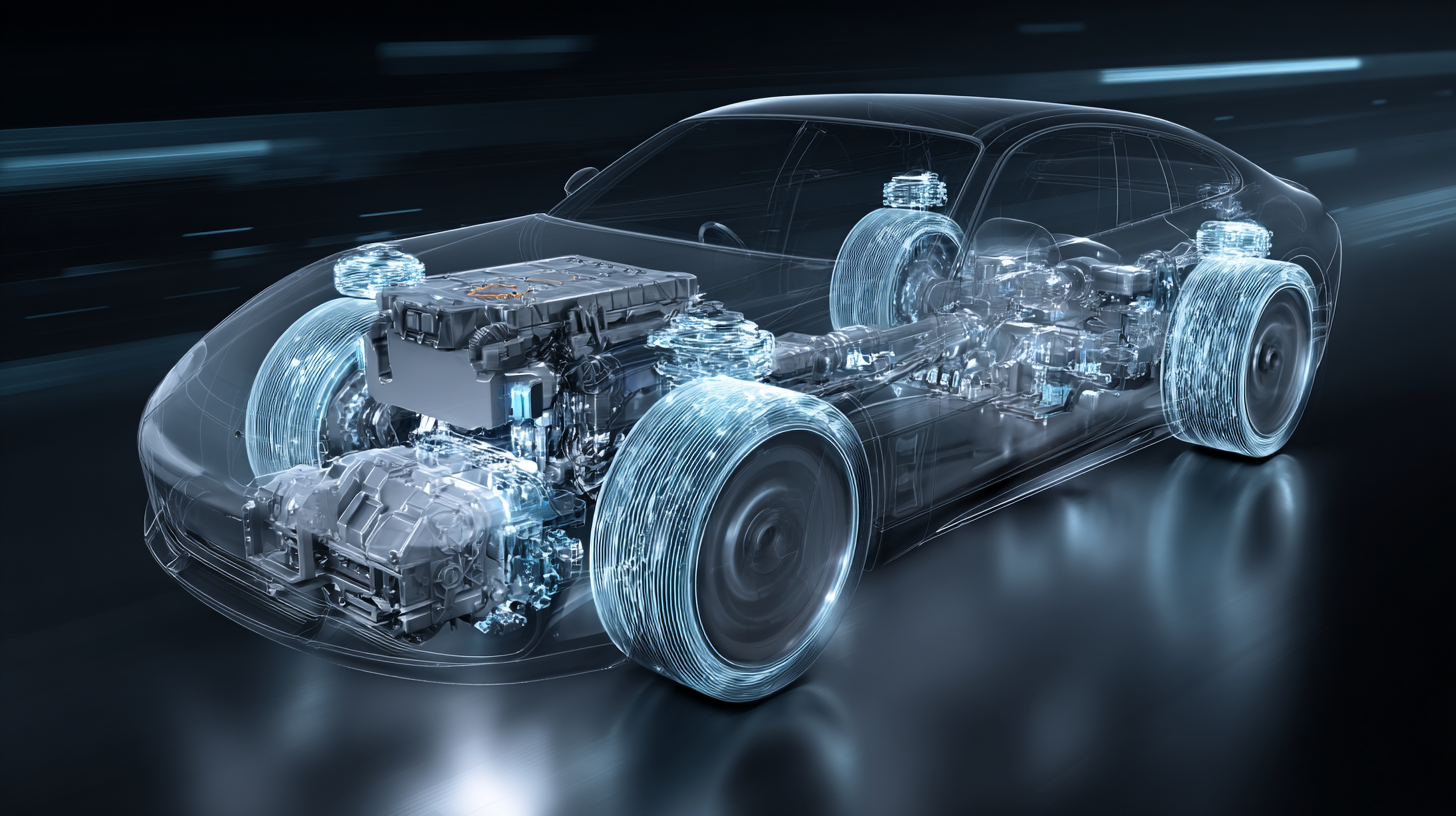 Connected vehicle networks are revolutionizing the automotive industry by enhancing user experience and leveraging data analytics to create smarter and safer driving environments. These networks enable vehicles to communicate with each other, infrastructure, and the cloud, which provides real-time information about traffic conditions, road hazards, and weather updates. This connectivity not only improves navigation and efficiency but also allows for predictive maintenance, reducing the likelihood of breakdowns by alerting drivers to potential issues before they escalate.
Connected vehicle networks are revolutionizing the automotive industry by enhancing user experience and leveraging data analytics to create smarter and safer driving environments. These networks enable vehicles to communicate with each other, infrastructure, and the cloud, which provides real-time information about traffic conditions, road hazards, and weather updates. This connectivity not only improves navigation and efficiency but also allows for predictive maintenance, reducing the likelihood of breakdowns by alerting drivers to potential issues before they escalate.
Moreover, the integration of advanced data analytics within these networks significantly enhances the customization of user experiences. Vehicle manufacturers can analyze vast amounts of data collected from connected vehicles to understand driver behavior and preferences, enabling them to offer personalized services and recommendations. Features like adaptive cruise control, automated driving assistance, and tailored infotainment options enhance the overall driving experience. As these connected systems evolve, they promise to redefine how drivers interact with their vehicles, making every journey more enjoyable and safe.

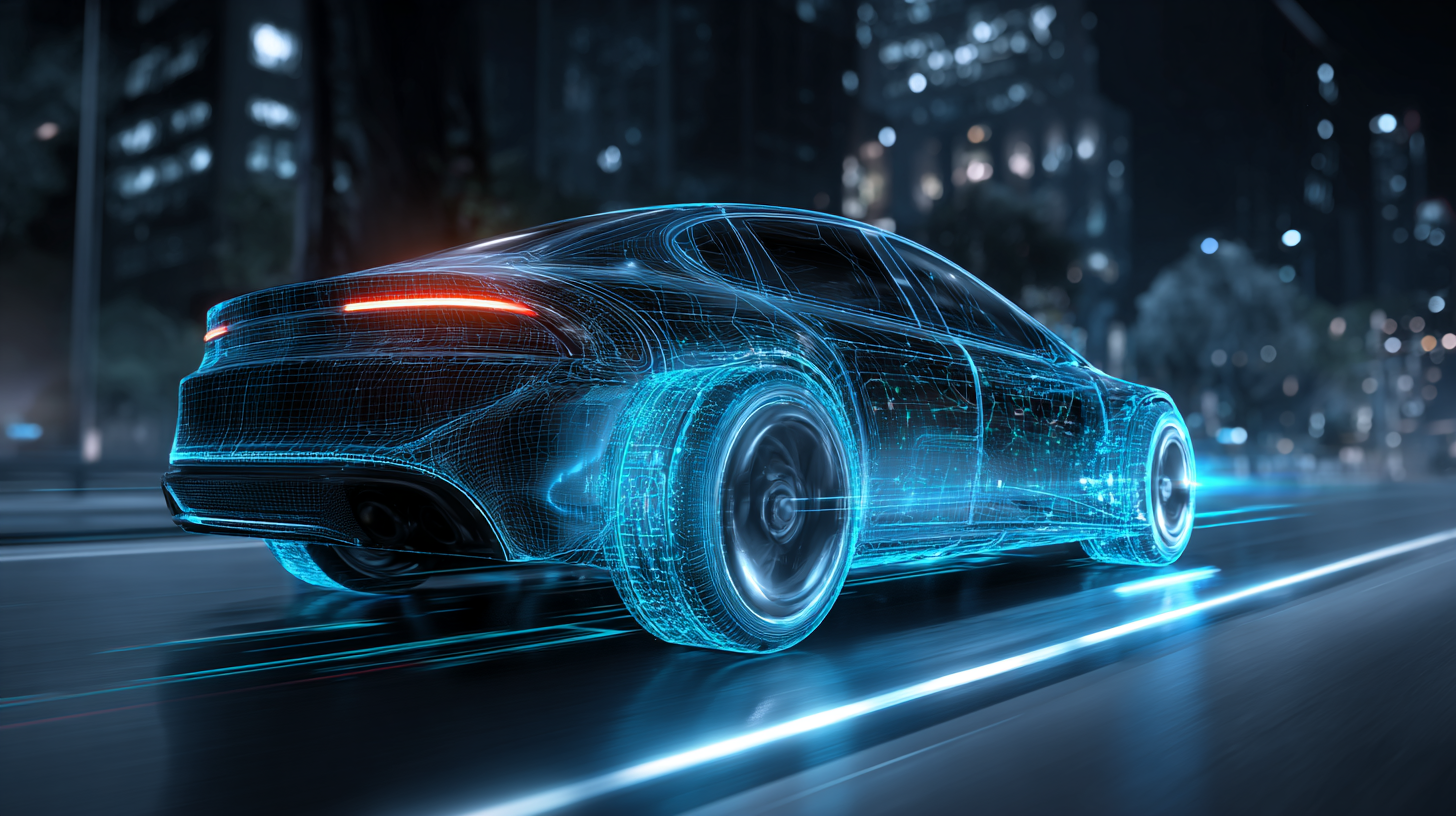

 Connected vehicle networks are revolutionizing the automotive industry by enhancing user experience and leveraging data analytics to create
Connected vehicle networks are revolutionizing the automotive industry by enhancing user experience and leveraging data analytics to create 